Related Research Articles
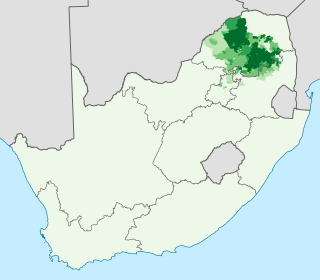
Sesotho sa Lebowa is a Sotho-Tswana language group spoken in the northeastern provinces of South Africa, most commonly in Mpumalanga, Gauteng and the Limpopo provinces. It is erroneously commonly referred to in its standardised form as Pedi or Sepedi and holds the status of an official language in South Africa.

Tswana, also known by its native name Setswana, and previously spelled Sechuana in English, is a Bantu language spoken in and indigenous to Southern Africa by about 8.2 million people. It is closely related to the Northern Sotho and Southern Sotho languages, as well as the Kgalagadi language and the Lozi language.
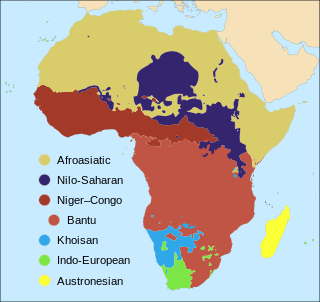
The number of languages natively spoken in Africa is variously estimated at between 1,250 and 2,100, and by some counts at over 3,000. Nigeria alone has over 500 languages, one of the greatest concentrations of linguistic diversity in the world. The languages of Africa belong to many distinct language families, among which the largest are:
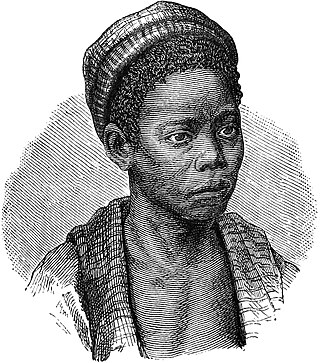
The Tswana are a Bantu ethnic group native to Southern Africa. Ethnic Tswana made up approximately 85% of the population of Botswana in 2011.
SothoSesotho, also known as Southern Sotho or Sesotho sa Borwa is a Southern Bantu language of the Sotho–Tswana ("S.30") group, spoken in Lesotho, and South Africa where it is an official language.

The Sotho, also known as the Basotho, are a prominent Sotho-Tswana ethnic group native to Southern Africa. They primarily inhabit the regions of Lesotho and South Africa.
Sotho may refer to:

At least thirty-five languages are spoken in South Africa, twelve of which are official languages of South Africa: Ndebele, Pedi, Sotho, South African Sign Language, Swazi, Tsonga, Tswana, Venda, Afrikaans, Xhosa, Zulu, and English, which is the primary language used in parliamentary and state discourse, though all official languages are equal in legal status. In addition, South African Sign Language was recognised as the twelfth official language of South Africa by the National Assembly on 3 May 2023. Unofficial languages are protected under the Constitution of South Africa, though few are mentioned by any name.
The Lobedu or Balobedu(also known as the BaLozwi or Bathobolo) are a southern African ethnic group that speak a Northern Sotho dialect. Their area is called Bolobedu. The name "balobedu" means "the mineral miners," lobela or go loba, - to mine. Their ancestors were part of the great Mapungubwe early civilization. They have their own kingdom, the Balobedu Kingdom, within the Limpopo Province of South Africa with a female ruler, the Rain Queen Modjadji.
The Northern Ndebele people are a Nguni ethnic group native to Southern Africa. Significant populations of native speakers of the Northern Ndebele language (siNdebele) are found in Zimbabwe and in South Africa.
Tsotsitaal is a South African vernacular dialect derived from a variety of mixed languages mainly spoken in the townships of Gauteng province, but also in other agglomerations all over South Africa. Tsotsi is a Sesotho, Pedi or Tswana slang word for a "thug" or "robber" or "criminal", possibly from the verb "ho lotsa" "to sharpen", whose meaning has been modified in modern times to include "to con"; or from the tsetse fly, as the language was first known as Flytaal, although flaai also means "cool" or "street smart". The word taal in Afrikaans means "language".

The Sotho-Tswana, also known as the Sotho or Basotho, although the term is now closely associated with the Southern Sotho peoples are a meta-ethnicity of Southern Africa. They are a large and diverse group of people who speak Sotho-Tswana languages. The group is predominantly found in Botswana, Lesotho, South Africa, and the western part of Zambia. Smaller groups can also be found in Namibia and Zimbabwe.
The nine provinces of South Africa are divided into 52 districts, which are either metropolitan or district municipalities. They are the second level of administrative division, below the provinces and above the local municipalities.
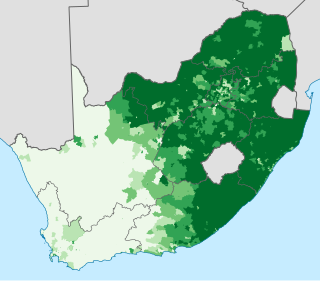
South African Bantu-speaking peoples represent the majority ethno-racial group of South Africans. Occasionally grouped as Bantu, the term itself is derived from the English word "people", common to many of the Bantu languages. The Oxford Dictionary of South African English describes "Bantu", when used in a contemporary usage or racial context as "obsolescent and offensive", because of its strong association with the "white minority rule" with their Apartheid system. However, Bantu is used without pejorative connotations in other parts of Africa and is still used in South Africa as the group term for the language family.
The Prehistory of South Africa lasts from the Middle Stone Age until the 17th century. Southern Africa was first reached by Homo sapiens before 130,000 years ago, possibly before 260,000 years ago. The region remained in the Late Stone Age until the first traces of pastoralism were introduced about 2,000 years ago. The Bantu migration reached the area now South Africa around the first decade of the 3rd century, over 1800 years ago. Early Bantu kingdoms were established in the 11th century. First European contact dates to 1488, but European colonization began in the 17th century.

The National Anthem of Zimbabwe, also known by its incipit in Shona, "Simudzai Mureza wedu WeZimbabwe", and the final line of each verse in Ndebele, "Kalibusiswe Ilizwe leZimbabwe", was introduced in March 1994 after a nationwide competition to replace the South African-derived "Ishe Komborera Africa" with a distinctly Zimbabwean song. The winning entry was a Shona song written by Professor Solomon Mutswairo and composed by Fred Changundega. It was translated into English and Ndebele, the two other main languages of Zimbabwe. The Ndebele version is mainly sung in the Matebeleland regions of Zimbabwe, while the English version is not commonly sung. Some schools in Matabeleland South have introduced the Sotho/Tswana version.
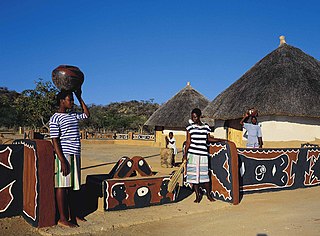
The Pedi or Bapedi, also known as the Sotho, Basotho, Northern Sotho, Basotho ba Lebowa, Transvaal Sotho, Marota, or Dikgoshi. Are a Sotho-Tswana ethnic group native to South Africa and Botswana that speak Pedi or Sepedi, which is one of the 12 official languages in South Africa. They are primarily situated in Limpopo, Gauteng and northern Mpumalanga.
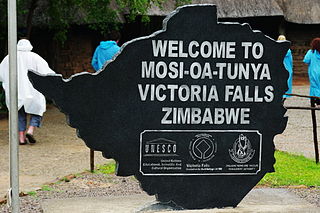
Many languages are spoken, or historically have been spoken, in Zimbabwe. Since the adoption of its 2013 Constitution, Zimbabwe has 16 official languages, namely Chewa, Chibarwe, English, Kalanga, Koisan, Nambya, Ndau, Ndebele, Shangani, Shona, sign language, Sotho, Tonga, Tswana, Venda, Xhosa. The country's main languages are Shona, spoken by only 42% of the population, and Ndebele, spoken by roughly 39%. English is the country's lingua franca, used in government and business and as the main medium of instruction in schools. English is the first language of most white Zimbabweans, and is the second language of a majority of black Zimbabweans. Historically, a minority of white Zimbabweans spoke Afrikaans, Greek, Italian, Polish, and Portuguese, among other languages, while Gujarati and Hindi could be found amongst the country's Indian population. Deaf Zimbabweans commonly use one of several varieties of Zimbabwean Sign Language, with some using American Sign Language. Zimbabwean language data is based on estimates, as Zimbabwe has never conducted a census that enumerated people by language.
Pretoria Taal, or Pretoria Sotho, is the urban lingua franca of Pretoria and the Tshwane metropolitan area in South Africa. It is a combination of Sepedi-Tswana and influences from Tsotsitaal, Afrikaans and other Bantu languages of the region. It is spoken by most black residents of all ages and levels of education in Tshwane. Though it is most commonly used in informal situations, it is also used in schools and at political events in which people have different language backgrounds. Standard Setswana and Northern Sotho are not commonly used in schools except in SeTswana and Northern Sotho lessons. Pretoria Taal is mutually intelligible with SeTswana and Northern Sotho.
References
- ↑ The Constitution of the Republic of South Africa, Chapter 1 Archived June 29, 2011, at the Wayback Machine
- ↑ For the text of the Constitution of the Republic of South Africa in 11 official languages, each version of which contains the name of the country in the respective language, see Constitutional Court of South Africa. There is a 12th official language: South African Sign Language.